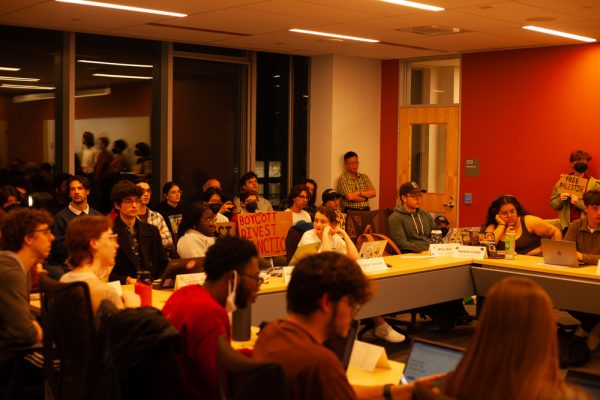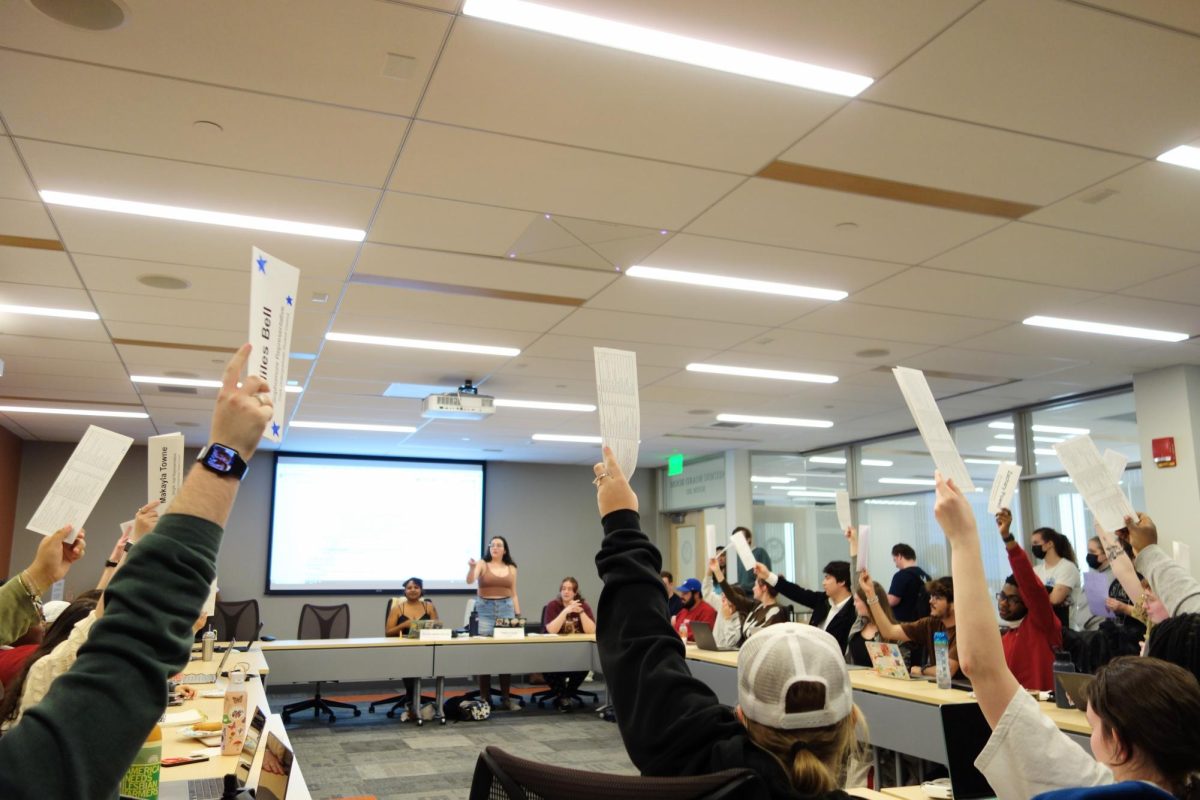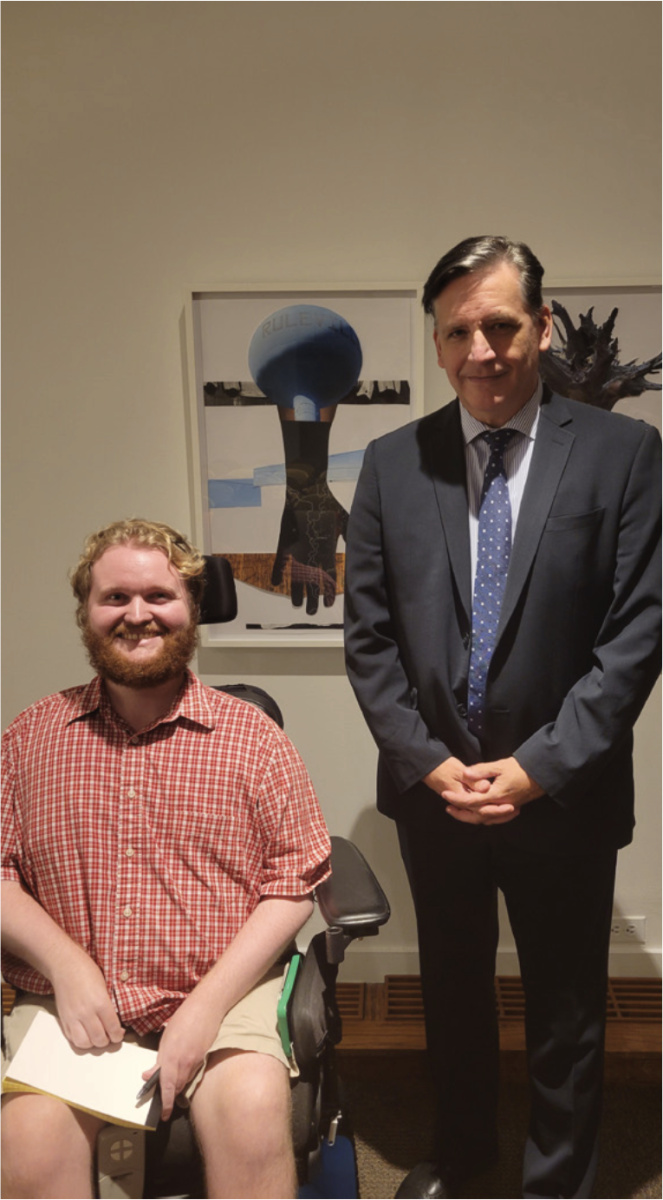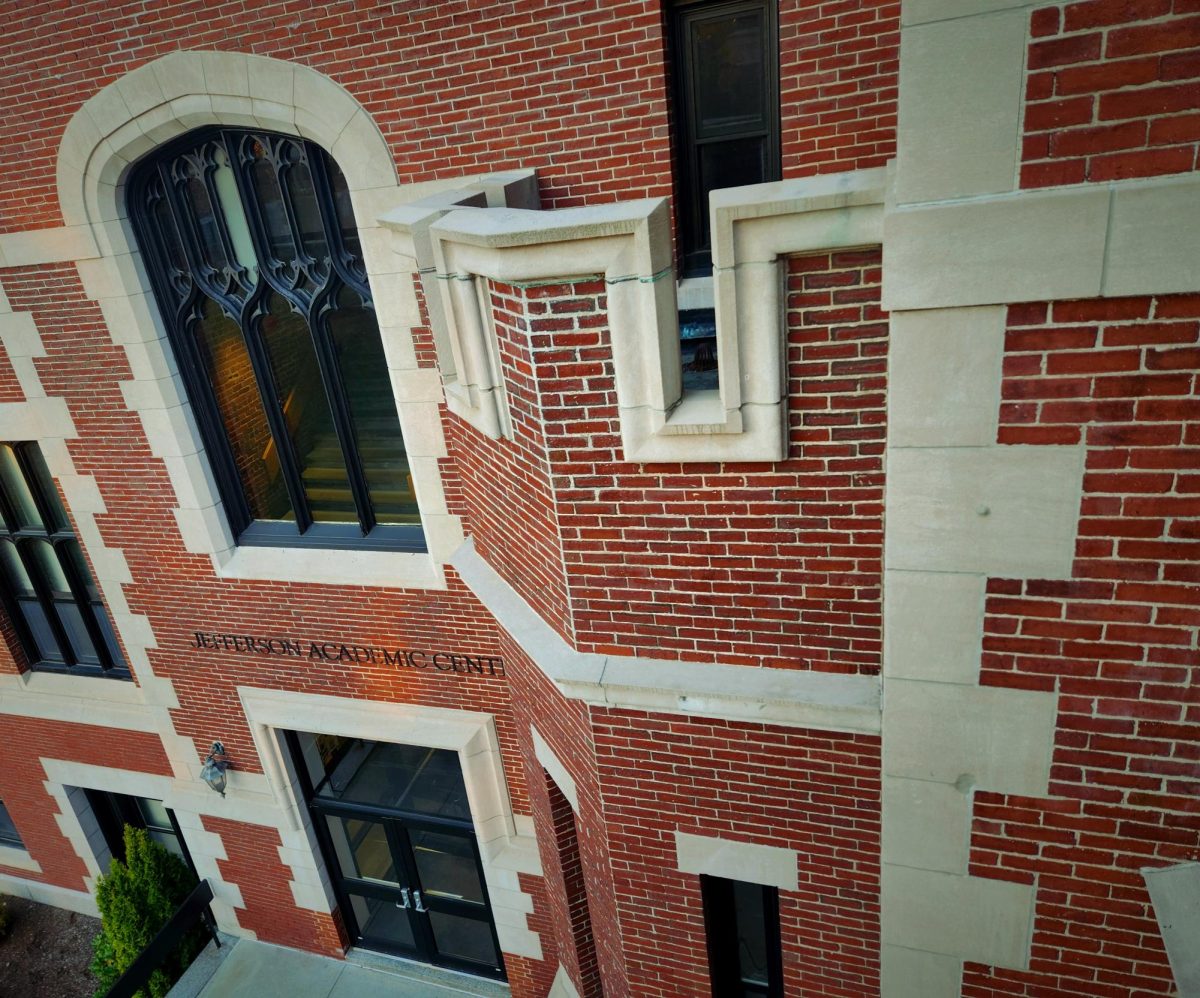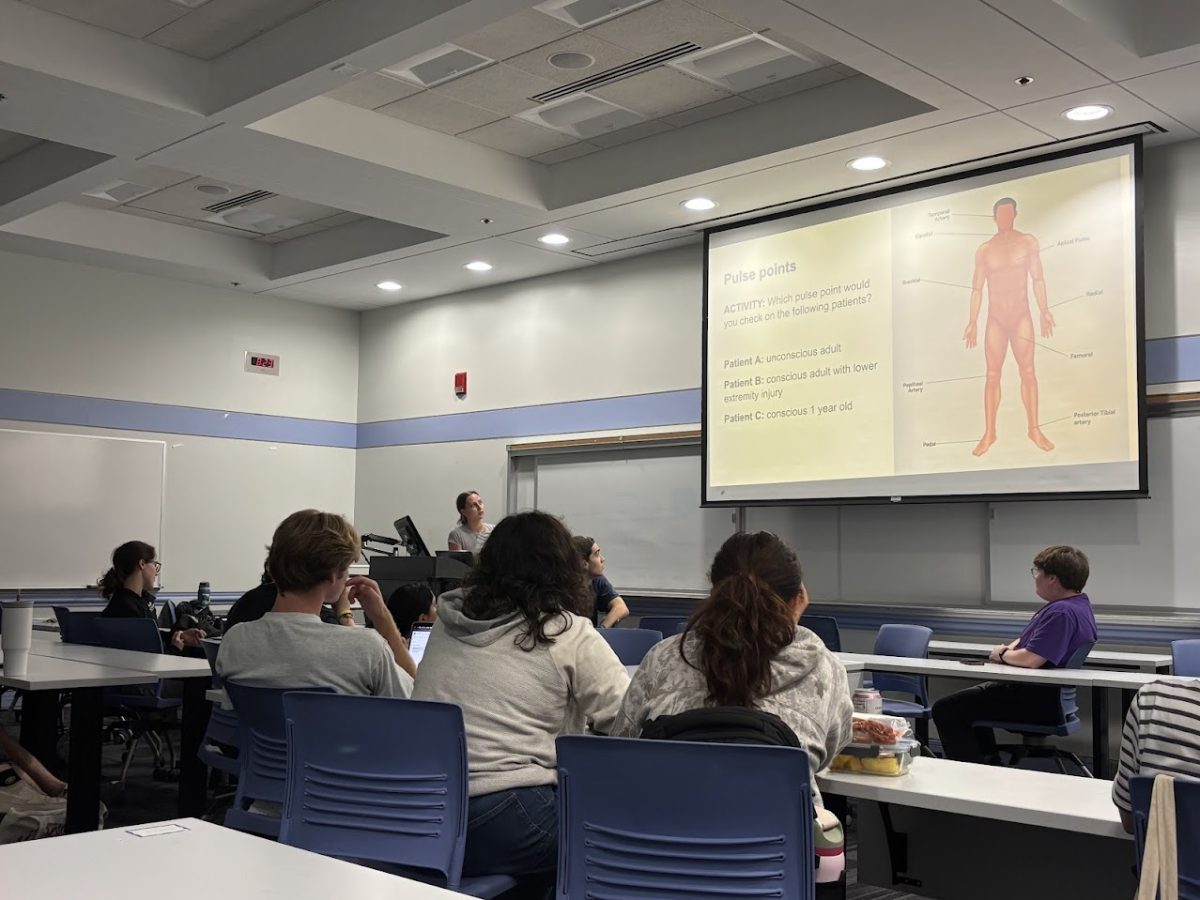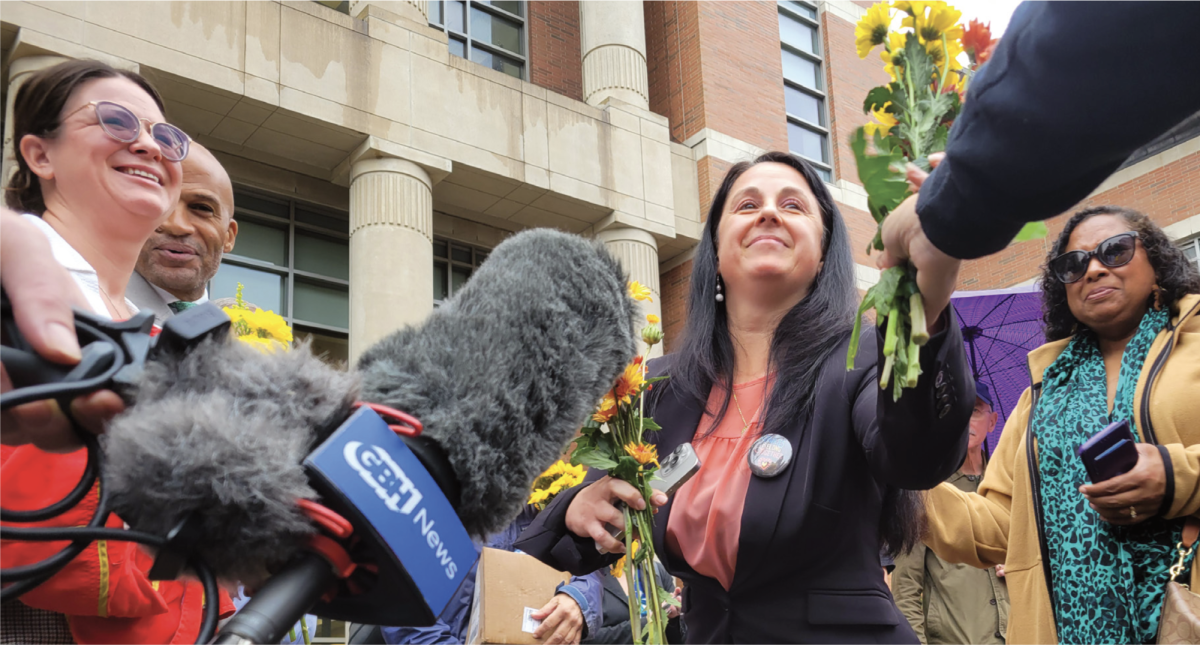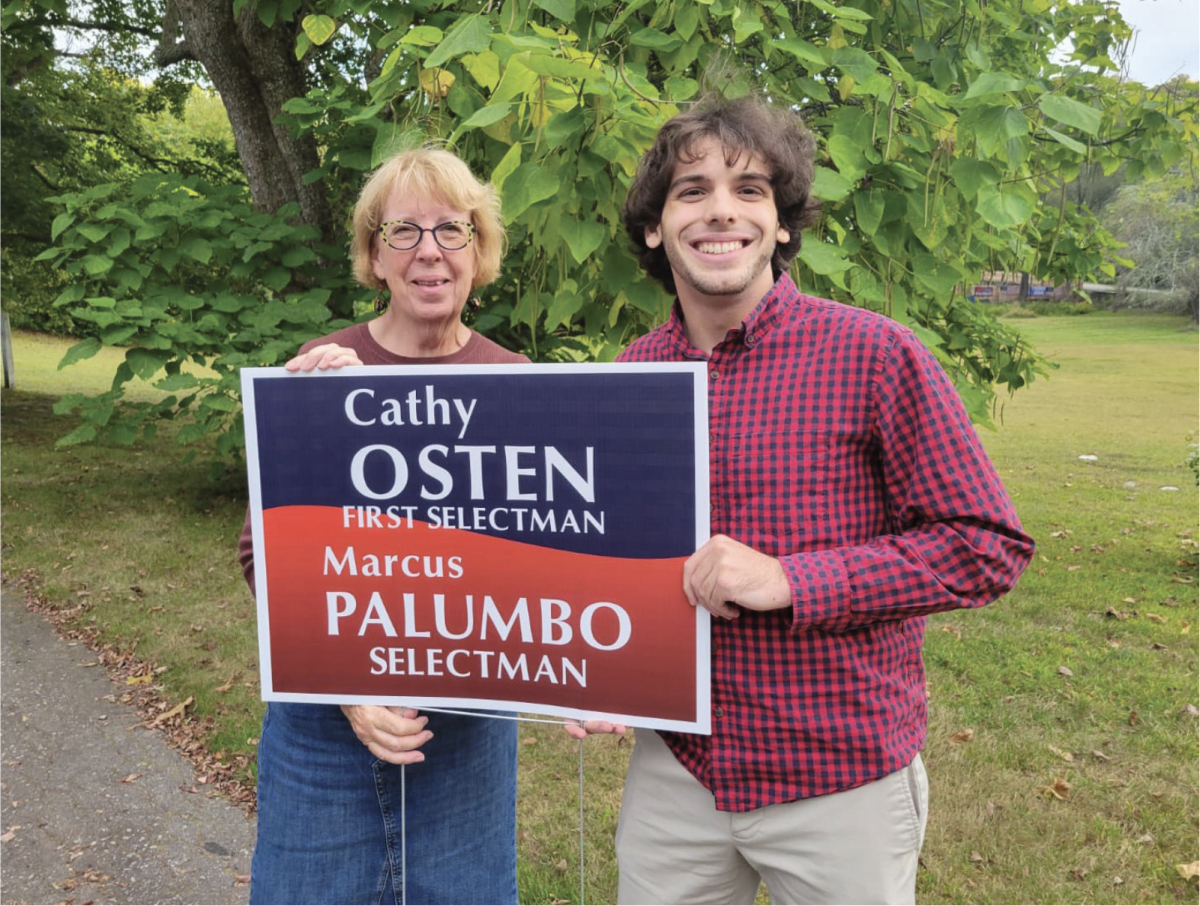Clark’s Undergraduate Student Council (CUSC) voiced its support for an ongoing campus divestment campaign at a meeting last Thursday night.
CUSC voted unanimously to draft an Instagram post officially endorsing the call for divestment that over 40 clubs have already joined through posts on the platform.
The movement, initiated by a March 10 Instagram post, is organized by a new student organization called Clark Students for Justice in Palestine (CSJP). The group, which the University recently recognized as a club, is demanding that Clark divest its endowment fund from any investments in corporations associated with the “ongoing genocide of Palestinians” by Israeli forces.
The Student Council meeting, which lasted over two hours, was well-attended by concerned students seeking to make their voices heard on the issue of divestment.
The social media campaign for divestment was launched by CSJP in reaction to a meeting in early February between student activists and University leaders, including President David Fithian and Dean of Students Kamala Kiem. According to CSJP’s March 10 Instagram post, the administrators asked the students for more evidence of broader student support for divestment.
Members of CUSC were similarly told by University leaders that evidence of consensus among the student body was necessary for any divestment proposal to move forward through them to the Board of Trustees, which controls Clark’s endowment fund.
An ad-hoc committee of CUSC representatives began drafting a resolution calling for a campus-wide referendum on divestment before Thursday’s meeting. They expect to have draft legislation ready for proposal for Student Council’s next meeting on March 28.
Students comment on divestment
Around 6:45 p.m., a crowd formed around the Alumni Board Room, where CUSC was already in executive session with Provost Sebastián Royo and Dean of Students Kamala Kiem. Executive sessions are not open to the public.
Doors opened to the Alumni Board Room shortly past 7:00 p.m. after the executive session adjourned. Provost Royo and Dean Kiem left before the CUSC general meeting began. Sammi Bosque ’24, President of CUSC, collected the names of students wishing to offer a public comment.
Soon, all the chairs in the boardroom were filled, and students lined the walls. Many brought signs with messages like, “Challenge convention, divest.”
Over the next half-hour, most speakers offered their opinions on the divestment movement. Each speaker was given a maximum of two minutes on the floor.
Ethan Quinn ’25, President of Clark Hillel, one of the campus affinity organizations for Jewish students, said that the push for divestment from businesses with Israeli ties was worrying.
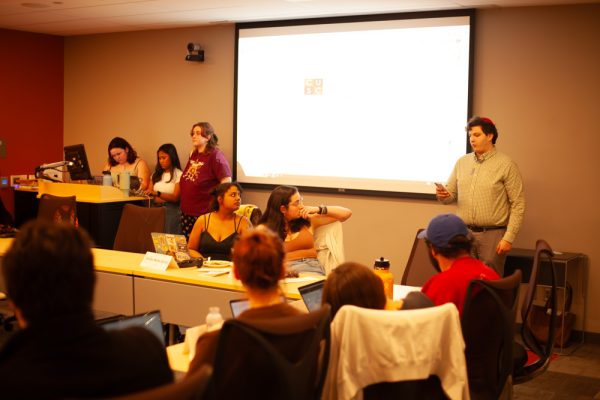
“My community feels isolated, unsupported and scared,” said Quinn. “SJP has no authority to speak for the student body in any capacity,” he added, suggesting that the organization was unduly influenced by off-campus interests.
Aaron Kirshenbaum, a graduate student identifying himself as Jewish, spoke in favor of the divestment campaign. He argued that divestment is necessary to ensure “our collective safety,” on-campus and elsewhere. Kirshenbaum said that SJP – at the time, not a registered student organization – was composed of Clark students.
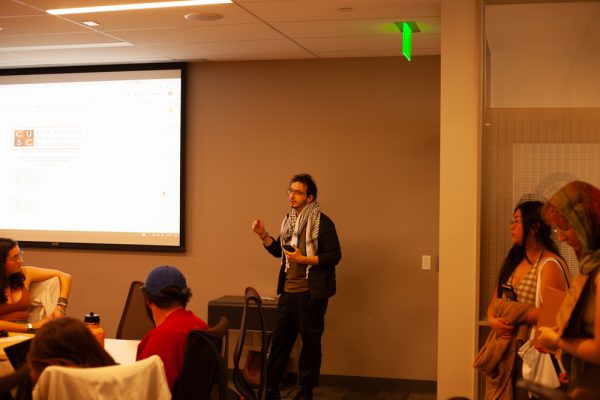
“Money and morals should go hand in hand,” said sophomore Marcus Palumbo, in support of divestment. He asserted that it was possible to consider divestment without losing sight of the importance of campus safety.
“I try to live by the values preached to us in the Torah,” said Brenner Yellis ’25, another Jewish student. “[The Israel-Hamas war] contrasts everything I’ve spent the last 21 years living,” he said. Yellis is in favor of divestment. “I don’t want my money to go to things that oppose my Jewish values,” he said.
More than a dozen online comments in support of divestment were later read to the group by CUSC’s Executive Board.
Council developing proposal for a campus referendum
The divestment conversation among representatives began at a February 29 Student Council meeting in which representatives from the Food Insecurity Resistance Movement (FIRM), a student-organized food pantry, presented their plan for a boycott and divestment campaign.
“We had a lot of discussion about it, and we came to the conclusion that… we were in support of the idea,” Stephen Gibbons told The Scarlet. Gibbons is a junior serving as an Equity and Inclusion Representative. “The question then became, how do we turn this idea into a resolution with actionable steps?” he said.
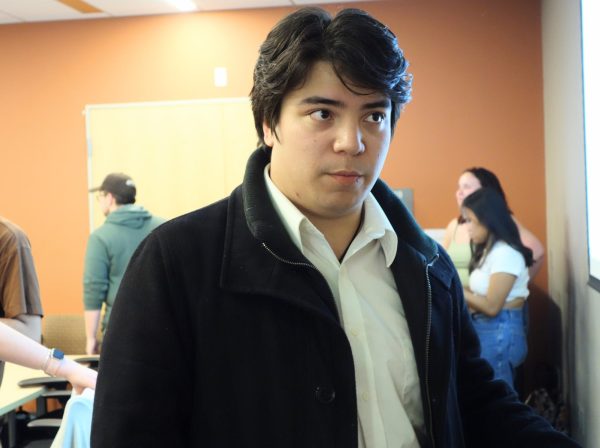
Gibbons is now serving on the informal committee to draft the resolution, which he suggested has been meeting regularly.
The boycott targets over 20 food products associated with Israeli businesses that FIRM asserts may be served at Clark.
The online campaign launched by Clark SJP, taking cues from FIRM’s demands, lists nearly 30 specific corporations from which to divest. They attribute the list to a popular Instagram account for the Boycott, Divest and Sanction National Committee. Activists also focused on investments located in Clark’s endowment fund, especially those relating to the defense industry.
The University’s endowment was valued at $463 million in 2023, according to analysis by the National Association of College and University Business Officers. It is composed of “approximately 550 individual endowed ‘funds,’ each with its own set of donor restrictions for use,” according to a 2022 budget presentation obtained by The Scarlet. The presentation shows that in fiscal year 2023, funds drawn from the endowment made up 20% of the University’s $140.3 million revenue stream.
Gibbons said that the draft team is working to develop “very specific” language for the resolution. He hopes that a draft will be complete for the next CUSC meeting on Thursday, March 28. “It depends entirely on what the Judiciary comes back to us with and decides,” he said.
The Judiciary Committee, Student Council’s judicial branch, is working closely with the drafters to ensure that the legislation is “constitutionally sound,” according to Daniel Higgins, a member of the Committee.
Higgins stressed patience, acknowledging that students and representatives alike were interested in quick action. “It’s an urgent situation – people aren’t going to stop dying,” he told The Scarlet. Still, Higgins said, “we have to go through [the] rules.”
Both agreed that the legislation, when it appears before Council, will propose a campus-wide referendum on whether the University should divest. All undergraduate students will be able to vote. If the proposal is passed and a referendum takes place, the result will not be binding, as Council controls its own budget only, and not the endowment.
Next steps
University leaders, CUSC President Bosque confirmed from a March 11 meeting, are looking for more evidence of consensus among students. Bosque said that President Fithian and Dean Kiem encouraged the Council to consider a referendum.
In an email to The Scarlet, Dean Kiem confirmed that she encouraged student activists to work through CUSC. “A referendum represents the student’s voice,” she said, but does not “dictate a University decision.”
“In saying that they need to see a referendum to move forward, I mean, it does seem like an open invitation,” Bosque told The Scarlet. She noted that CUSC had not received any guarantee that University leaders would take the result of a referendum to the Board of Trustees.
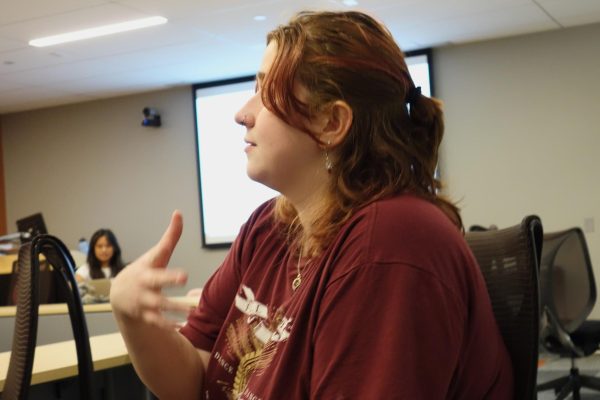
“I’m not sure where they think students are currently at,” said Bosque, because much of the movement is taking place online. “After tonight, we have folks who are on the record of having their support,” including an in-person crowd, she said.
“There were no guarantees to FIRM students, other than a willingness to see what’s possible and reasonable,” Dean Kiem told The Scarlet.
Dahlia Mella-Goris ’24, Vice President of CUSC, said the high turnout “showed the Council and myself how many people care about divestment.” They added that if a referendum were approved by the student body, CUSC would have more “leverage” over the Board of Trustees on divestment.
Two-thirds of representatives would need to approve the resolution for a referendum to go out to students, Mella-Goris said. They were unsure of what percentage of students would need to approve the referendum for it to be adopted. CUSC has not conducted a campus-wide referendum in the last five years, they said.
Even with the proposal still in development, CUSC took action on divestment. At the meeting, a motion was unanimously approved to draft an Instagram post declaring CUSC’s endorsement of Clark SJP’s demands. In a second unanimous decision, the representatives agreed to vote on approving the post as soon as it was ready. Bosque said that the representatives had “every right” to do so.
